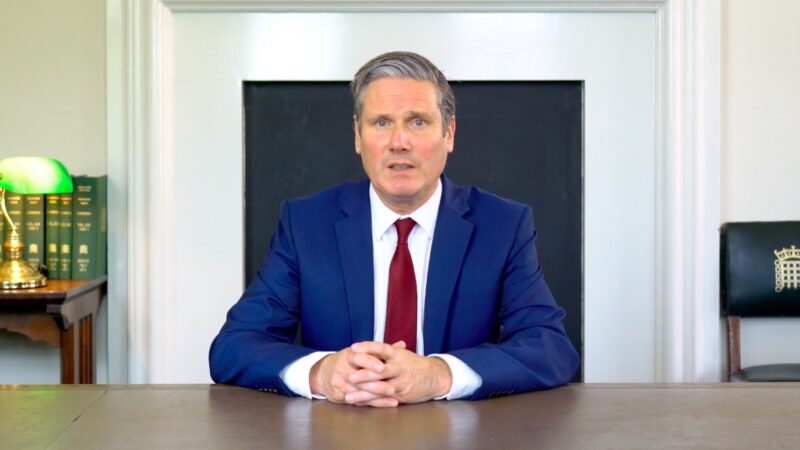
Keir Starmer made the case for focusing on the consequences of Covid-19 and its economic impact rather than on Scottish independence in a call with voters this afternoon.
In his latest ‘Call Keir’ online video conference chat with voters in Lanarkshire today, the UK Labour leader discussed how the party might win back support after falling behind at the last election.
He agreed with a participant that “the constitutional independence question dominates in Scotland”, but said: “Talking about the constitutional position isn’t really the most important thing.
“Lots of people have lost their lives. Frankly, I think we should focus on that.” He stressed that an economic crisis was on its way and that many had so far been “shielded” by the economic impact of Covid.
“My strong feeling is that we should be focusing on that,” he said. “That’s what is going to hit people really hard in the next weeks, months, years.”
The UK Labour leader admitted that the “independence question isn’t going away” but said he didn’t want to break up the UK and thought the “primary focus should be limiting that economic crisis”.
On Labour’s approach to Scotland, he said more power ought to be devolved from Westminster to Scottish councils and communities, reiterating: “What I don’t want to see is the UK broken up.”
But Starmer emphasised the importance of pride, saying: “Pride in Scotland and pride in our local towns and villages is huge, and there’s absolutely nothing wrong with that.
“People I think don’t understand the pride that people have in the place they come from. I think we need to turn that on its head really and recognise that and celebrate that in many ways.
“But I don’t think that means you break up the UK, particularly at a time like this when I fear – genuinely fear, and I hope I’m wrong – that we’ve got an awful economic crisis about to come down on us.”
Starmer was also asked by an SNP voter about Labour’s view of the Gender Recognition Act 2004, in response to which he said: “I think the GRA was in the right direction but it obviously doesn’t go far enough.
“We should be open to a discussion about how we can improve on that. When you talk to trans people about the process they have to go through, it’s obvious that it’s not right and that we need to amend the legislation.
“Personally, I think we need to have a grown up discussion about that, because there are concerns from different parts of the Labour Party and labour movement, and actually the public, as to where you draw the balance and where you keep safe spaces, et cetera.
“I think it is perfectly possible to have that in a grown up way… This can get very heated very quickly. Everybody gets deeply entrenched on one side or the other, and that’s just the wrong way of doing it.
“It must be possible to improve the human rights and protections of the trans community in a way which most people think is about right. We need to stop thinking of this as a political football, and actually have a mature debate about it. And that’s the spirit in which I would enter this.
“I am worried. It’s only been briefed, but deliberately briefed, by the government that they’re not going to bother doing anything about the legislation. That means that certainly in Westminster we could be stuck for four years when there can’t be any movement in this area and I think that’s a big mistake.”




More from LabourList
Nudification apps facilitate digital sexual assault – and they should be banned
Diane Abbott suspended from Labour after defending racism comments
Labour campaign groups join forces to call for reinstatement of MPs